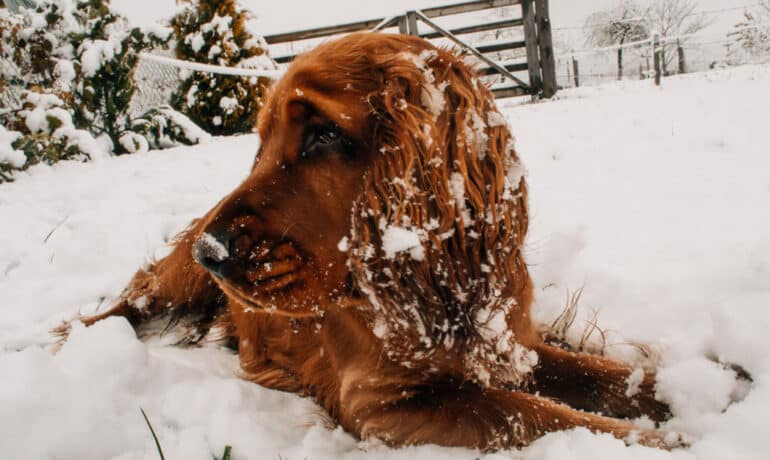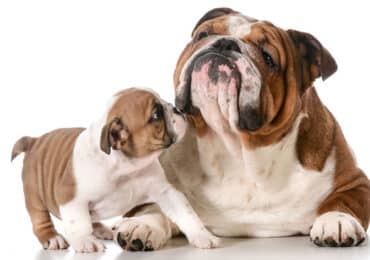When the snow is falling along with the temperature, that combination can bring problems that those of us in cold-weather climates know all too well. Your furry friends are no exception. When the cold winds blow, follow some of these top tips to keep your pet safe in the winter, even when it is snowing cats and dogs outside.
Frolic and Play the Safest Way
When the cold winds come knocking, it is best to be prepared. While some pets love playing in the snow, others are more content to stay curled up by the fireplace. Know your pet’s limits and always monitor them while they spend time outside.
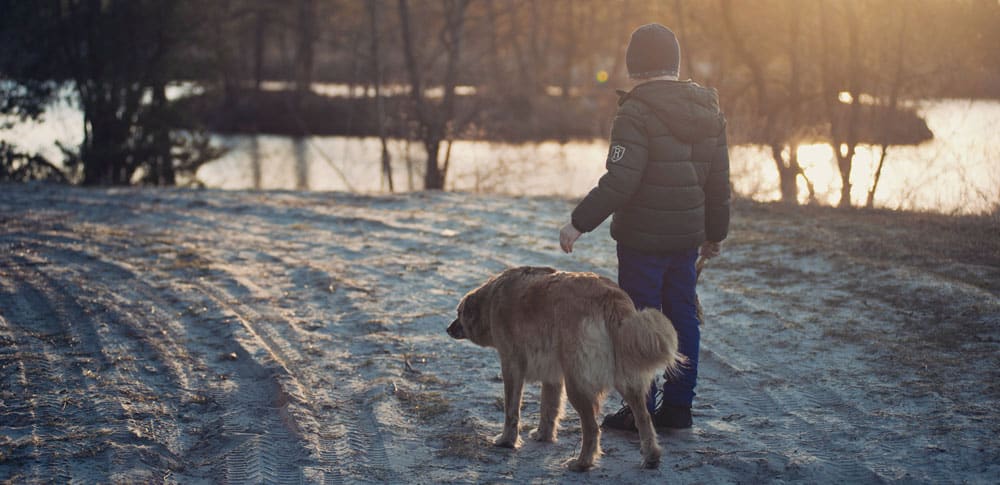
If you’re wondering how cold is too cold for your pet, use this handy chart as a reference. It is important to remember that if your pet is left outside in harsh conditions for too long, they are prone to become hypothermic or develop frostbite. If your dog has a thick undercoat and is a breed built for cold weather, such as the Siberian Husky or Malamute, they still need a well-insulated dog house and a high-fat, high-protein performance diet to be able to tolerate the cold. Even then, they should be inside during the bitter cold and at night.
Don’t forget about winter wardrobe; if you need a special winter coat, your furry friend may need one as well, especially if they are a small or shorthaired breed. Booties are also an option to protect your pet’s paws from becoming too cold and being injured by sharp ice and de-icing chemicals.
Whenever your pet comes in from a walk or backyard snow session, make sure to wipe down their feet, legs, and belly, and thoroughly check their paws to remove ice, and chemicals and check for pad injury. Always be vigilant in recognizing problems and making sure that your pet is safe in harsh temperatures.
Symptoms of hypothermia include:
- Anxiety
- Looking for warm places to burrow
- Shivering
- Slowed or stopped movement
- Weakness
- Whining
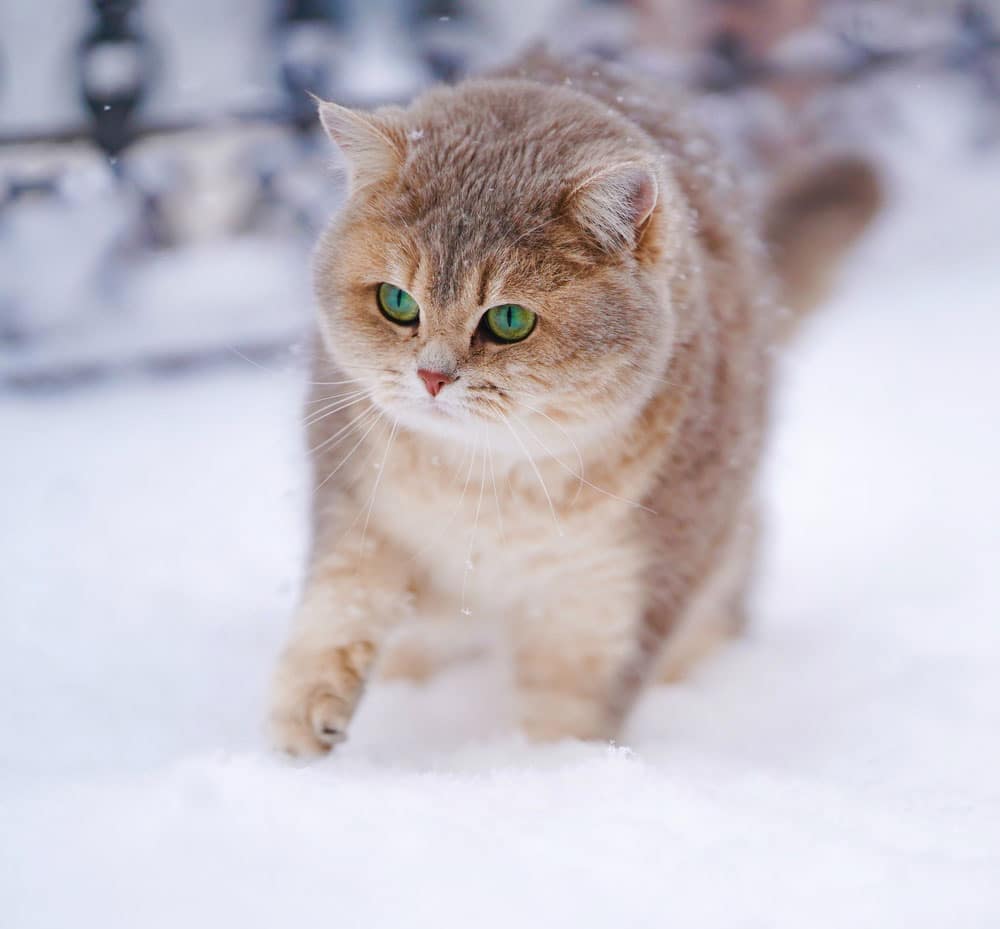
Protection from the Cold
The winter woes don’t affect just your pet; to an outdoor or stray animal, a warm vehicle engine can be a cozy bed for the night, but it can also be deadly. Make sure to check underneath the car, bang the hood, and honk your horn before starting your car each morning, to warn off would-be nesters from your engine.
Winter can also spell trouble in the form of poison, from antifreeze and ice melt salt to hot chocolate. Make sure you clean up messes quickly and never give pets seasonal treats that are potentially toxic.
Winter Wellness
Being from the Midwest, we know that winter weather is the harshest of the year, and extra precautions must be taken when it comes to health and safety.
All pets need a yearly vet visit for a check-up, and making sure yours is up-to-date before the snow falls is essential to address health concerns, especially those that can be aggravated by the change in temperature and staying inside (ahem…hibernation) for the season. For example, pets with arthritis may have flare-ups as the weather changes, and very young or old pets have different needs when it comes to cold tolerance.
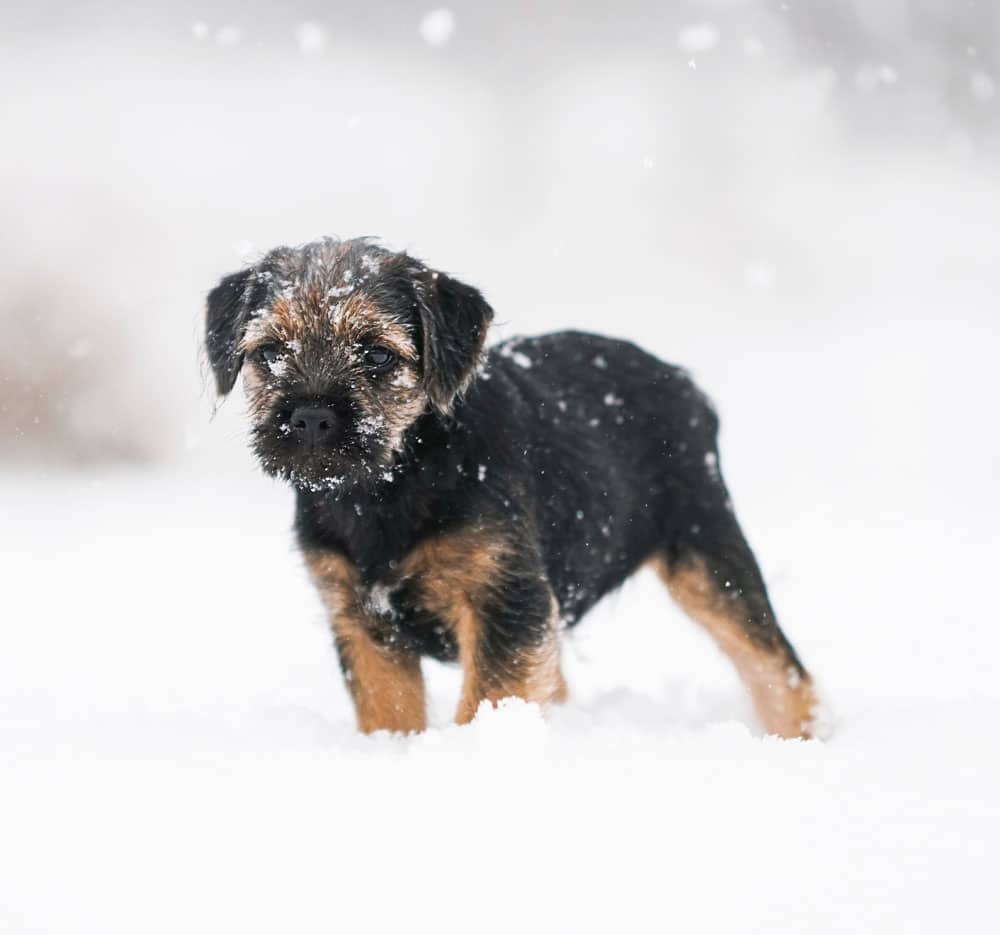
Another thing to consider is food and exercise changes for your pet. It’s tempting to think that gaining some winter weight can provide added insulation from the cold, but the truth is extra weight can be detrimental to their health and is not worth the risk. While it is a good idea to change your pet’s food in the winter for added generation of body heat and energy if they spend a lot of time outdoors, consult with an expert before making the transition.
Also, the extra time indoors can be a problem when it comes to pets at risk for obesity. If your pet is at risk, talk to your veterinarian about a diet and exercise plan that will work for the lifestyle changes that winter brings.
The winter wonderland outside can be both magical and menacing, but we want to keep the winter blues away for both you and your furry friend; if you notice any signs of hypothermia or frostbite, it is essential to contact a veterinarian right away. We’re here to help – contact us at 701.757.3500.

